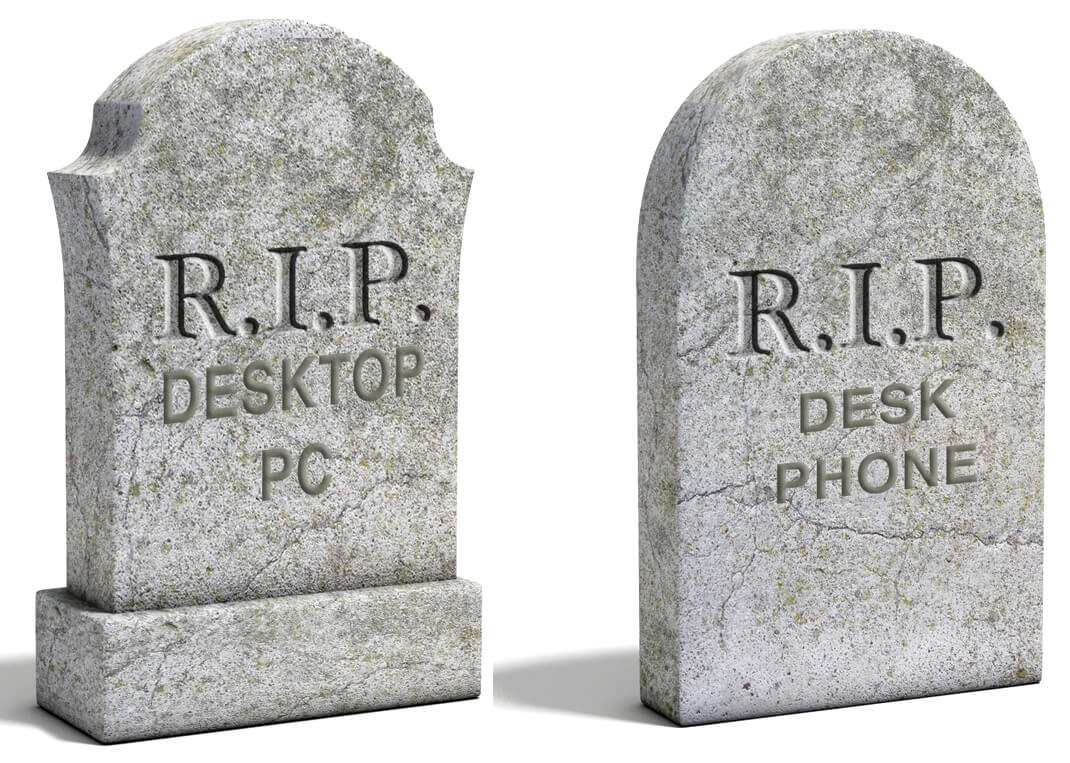By Chris Fleck
The desktop PC has been a workplace mainstay for 35 years, and desk telephones even longer, but for most organizations, their remaining time is limited.
Traditionally, PCs ran applications that were installed and often connected to servers and databases in a client-server architecture. These applications are still around, but they now run more securely with less maintenance if the app is “virtualized” and run in a data center or cloud with the user interface “remoted” to a client device.
In the past, there were compatibility or performance limitations for some PC apps. Some of the most challenging were Skype for Business, which required high-quality audio and video. Recently, however, this challenge has been resolved by Citrix, and now it’s possible to run virtualized Skype in the cloud with only a Raspberry Pi based as a client.
Skype for Business, used with a simple handset or headset connected to the same client device displaying an employee’s applications, is rapidly replacing expensive desk phones. Not only can Skype deliver point-and-click calling integrated with the workspace, but it now also can replace complex private branch exchange systems that route calls inside and outside of an office.
In addition, many tech-savvy workers would rather use their own mobile phones for making calls, and let their desk phones collect dust.
Most new applications are being written as web or mobile apps, often with the same cloud-based, software-as-a-service provider. These applications need only a web browser to provide full functionality. Putting a full PC on or below every desk alongside the traditional desk phone is overkill—and overly expensive. Not only that, but each PC adds security risks that need to be managed and monitored. Laptops will continue to have a place for mobile workers, but that’s just a fraction of the office workplace.
New devices are now coming to market with the capability to replace office PCs and desk phones with more functionality, built-in security and a drastically lower cost to acquire and manage.
Citrix recently introduced a device called the Workspace Hub, along with hardware partners Viewsonic and NComputing. Priced at around $100, this device can connect to cloud- or data center-based services and provide the virtual workspace employees need to get their work done, along with Skype for Business support to replace the desk phone. In addition, the devices include internet-of-things capability to add beacons and sensors that can automate log-ons and collect data.
Other new devices, such as the Samsung Galaxy S8 smartphone with a dock called the DeX, allows employees to use the phone and have a full desktop experience when connected to a large display and keyboard/mouse. That’s not just a smartphone—it’s technological nirvana.
So, yes. With few exceptions, the desktop PC and desk phone are dead.↵
Chris Fleck is on the board of the South Florida Technology Alliance and vice president of emerging solutions for Citrix Systems (Nasdaq: CTXS), a Fort Lauderdale company that provides secure delivery of applications and data.














